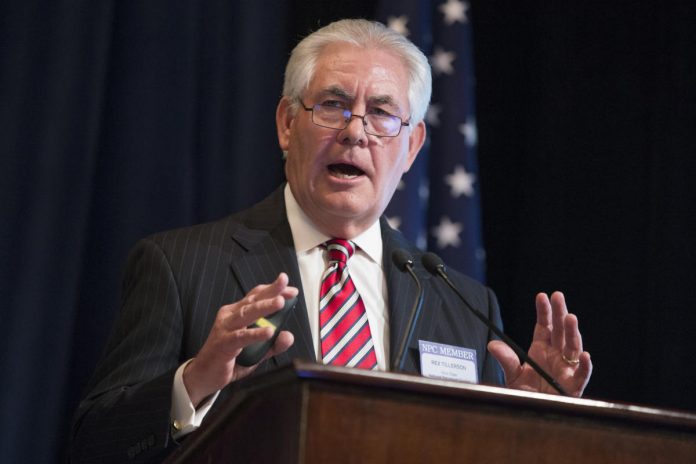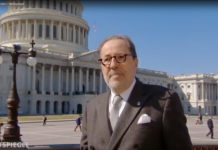
Exxon Mobil CEO Rex Tillerson’s view of global politics has been shaped by running one of the world’s largest, most sophisticated companies. With operations on six continents, Tillerson has had to strike deals and manage complex relations with dozens of countries and a wide range of leaders, based on pragmatism and mutually beneficial economic agreements.
This diplomatic experience has given him the savoir faire to implement President-elect Donald Trump’s vision of an America First foreign policy, based on geopolitical realism and a recognition that U.S. power largely flows from its economic strength.
In stark contrast, much of the U.S. foreign policy establishment is governed by the Cold War and the politics of the past, as well as the mistaken assumption that America will always be a superpower – regardless of its economic health.
Tillerson is an internationalist, but his positions are not defined by the kind of reckless ideology that seeks to impose democracy on the far corners of the world by force. Nor does he believe that U.S. interests should be subservient to the demands of the global community.
His brand of internationalism includes a healthy dose of realism. He recognizes that it’s in our national interest to engage other countries to solve problems that America can’t and shouldn’t solve alone. In Tillerson’s world, America should choose greater cooperation because it’s in our interest – not because it fits a view of how the world should be.
Tillerson also takes the long view when making decisions. At Exxon – a company that makes investments based on projections several decades into the future, he’s learned to be strategic and think several moves ahead of his rivals. In his words, “True leadership … requires long-range thinking.”
Increasing U.S. influence abroad requires harnessing the U.S. private sector. Tillerson has said that America’s best hope for re-energizing growth and creating new jobs is the establishment of a policy framework that supports investment, research and development, and the international competitiveness of our companies.
Moreover, he would provide wise counsel to Trump on trade issues. A strong advocate for free markets, Tillerson has warned that trade restrictions “can lead to prolonged stagnation and substantial job losses.”
Much has been made about his opposition to unilateral U.S. sanctions on Russia. Pundits have accused him of simply taking a pro-Russian position, but they are wrong. At Exxon’s helm, he has first-hand knowledge of sanctions – how they work and how they don’t. While sanctions may be politically convenient and popular in Washington, they are rarely effective without comprehensive compliance and enforcement efforts to give them teeth.
That’s not to say that Tillerson would avoid pursuing sanctions, but his straight forwardness would preclude him from pretending that an ineffective regime could produce the desired results.
To the surprise of many on the Left, Exxon’s former chief would serve as a counterweight to those voices in the administration who wish to diminish America’s role in climate negotiations. He believes that climate change poses risks that are serious enough to warrant action, and has consistently pointed out that “any policy framework must encourage and support global engagement.”
He would also oppose cuts to the nation’s laboratories run by the Department of Energy, which he views as strategic assets. Tillerson has long recognized the importance of education to our national security, and has been an outspoken proponent for strengthening the teaching of science, technology, engineering and mathematics in America’s schools.
For these reasons, Democrats should resist the urge to oppose his nomination.
On the other side of the aisle, Republicans should see him as a potential ally who supports open markets and free trade. Moreover, they should recognize the value of a secretary of State nominee formidable enough to be respected by Moscow – a relationship that will grow in importance with the rise of superpower China.
While Trump needs Tillerson’s strategic abilities to help achieve his foreign policy goals, America needs T-Rex to reassert the nation’s image as the world’s preeminent superpower.
George David Banks is a former CIA analyst and diplomat in the U.S. State Department. He was also a senior adviser on international affairs at the Council on Environment Quality under President George W. Bush.






